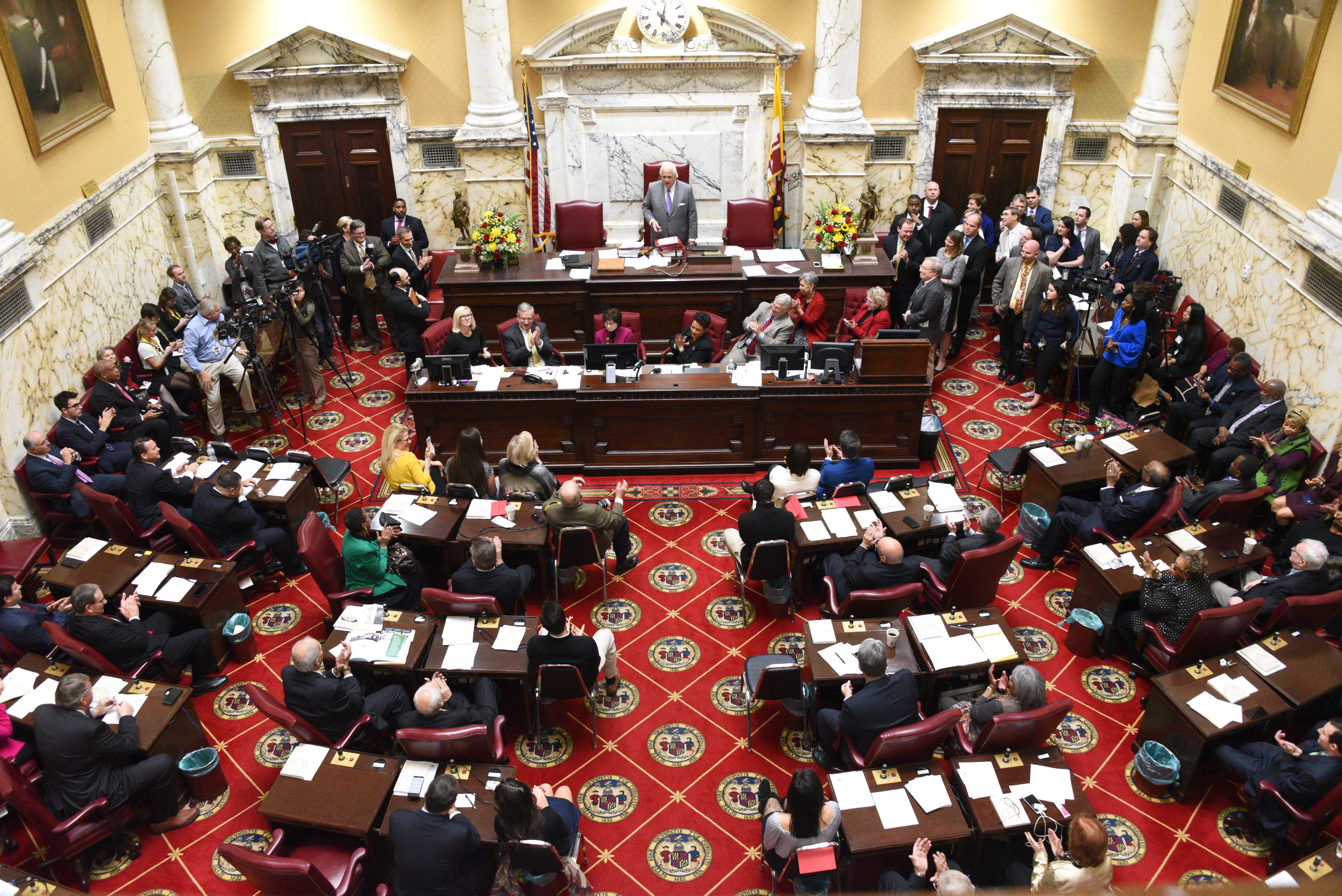By Sean Whooley and Alex Mann
Capital News Service
The Maryland Senate on Thursday passed a bill by a 33-14 vote that would authorize a court to allow divorce on grounds of mutual consent if the parties have minor children.
The measure, SB120, sponsored by Sen. Bobby Zirkin, D-Baltimore County, was opposed by Sens. Bryan Simonaire, R-Anne Arundel, and Andrew Serafini, R-Washington. Simonaire cited his own experiences as a child of divorced parents.
Serafini cited statistics showing the value of keeping marriages intact.
Zirkin, who chairs the Judicial Proceedings Committee, said the bill helps to eliminate a drawn-out process of divorce that can take years to complete.
“This is not some drive-by quickie divorce…It’s saying, if the parties work it out, then they can file without having to go through this farce,” Zirkin said. He argued the message encourages the couple to work things out amicably, rather than engage in contentious divorce proceedings.
The bill passed on third reading via a 33-14 vote. Most Republicans opposed the measure, with the exception of Sen. Wayne Norman, a Harford County lawyer who voted in favor.
Repealing the crime of adultery
Adultery is illegal in Maryland and is a misdemeanor, punishable by $10 fine.
A bill this session would take the ancient law off the books.
At least three adultery violations were filed in Maryland district courts during fiscal 2017, while the state’s Office of the Public Defender confirmed it has handled five cases over the past eight years. None of those cases consisted of adultery as the primary charge, according to a state legislative analysis.
The House Judiciary Committee on Tuesday heard HB 267, sponsored by Del. Kathleen Dumais, D-Montgomery, that would repeal the misdemeanor.
Including Maryland, 19 states still have statutes criminalizing adultery, and Dumais seeks to make it 18.
“The fine is a whopping $10 and, in my 28 years of practice, I have never, ever, had a client charged with it or been in a case where anyone was charged with it,” Dumais, a divorce lawyer, said in her testimony.
In his testimony Tuesday, Maryland family attorney James Milko argued the law is not only outdated but directly impacts legal proceedings. He said the law in place thwarts the purpose of some statutes in the divorce arena. Dumais agreed.
“This is simply arcane,” Dumais said. “It is still a ground for divorce and is something we can talk about in family law cases, but there need not be a crime on the books.”
Making youth marriages illegal
Under current Maryland law, youths at least 15 years old may marry. That would change under HB191 sponsored by Del. Vanessa Atterbeary, D-Howard. The bill would also repeal provisions allowing 16- and 17-year-olds from marrying with consent of a parent or guardian.
The legislation prevents 15-year-olds, who currently can marry with the same consent and a certificate from a medical professional, from marrying. The bill has failed ot pass twice before.
Atterbeary showed a video in Thursday’s House Judiciary Committee hearing. The video featured a woman who said she married at 16 years old, wasn’t allowed back in her high school and lost a scholarship because she was considered a dropout.
Atterbeary said bill opponents are misinformed.
“When individuals think of marriage and teenage marriage, it’s, ‘OK, there are some circumstances that have worked out,’” Atterbeary said. “Then there’s this romanticized teen-on-teen love. Then there are these horrific stories that you don’t know until you know.”
Veterans’ suicides would be tracked
A bill sponsored by Sen. Bryan Simonaire, R-Anne Arundel, alters the information required on a death certificate to include, under certain circumstances, the decedent’s military status. It also requires the Maryland Department of Health to publish an annual report on veteran suicide.
On Thursday, SB66 was heard in the Senate Finance Committee.
A 2016 report by the U.S. Department of Veterans Affairs found that nationally in 2014, an average of 20 veterans committed suicide each day, according to a state legislative analysis. The report stated veterans made up 8.5% of the United States population ages 18 and older, but accounted for 18% of all deaths by suicide among adults in the United States.
Len Lazarick of MarylandReporter.com contributed to this report.





Recent Comments